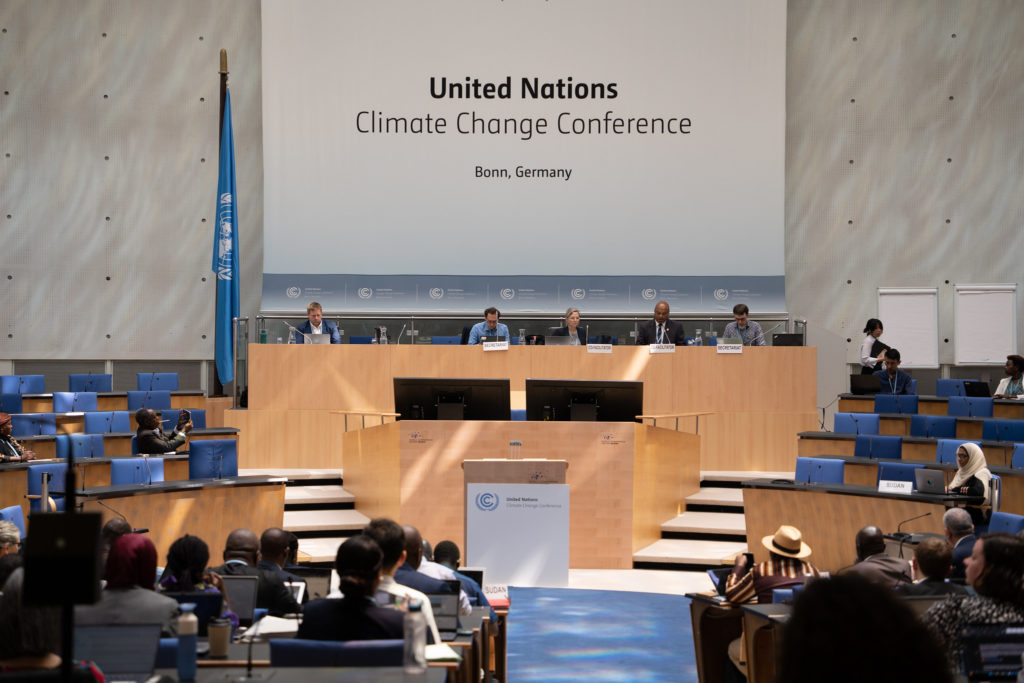
Setting the scene
The intersessional negotiations between Parties that are signatories to the United Nations Framework Convention on Climate Change (UNFCCC) and the Paris Agreement, SB62 in short, took place in Bonn from 16–26 June 2025, in a context of eroding trust in international cooperation.
Considering COP29’s disastrous climate finance outcome, which gave little reassurance on financial support for transition needs or escalating climate impacts in developing countries, the Parties’ ability to build convergence was under severe strain. These annual technical negotiations prepare for the more substantive political decisions to be agreed by Parties at the ministerial decision-making tracks of the Convention (COP) and Paris Agreement (CMA). Parties did not find strong convergence on many issues. However, technical progress was made to serve as a basis for the next meeting at COP30 in Belém in November.
The US, the wealthiest and largest emitting developed country, announced its withdrawal from the Paris Agreement in January, and did not send delegates to Bonn. SB62 became a testing ground for parties to configure themselves in its absence: it tested the EU and other developed countries’ commitment to multilateral climate action, put emerging economies under more pressure for action, and provided the latter an opportunity to test the EU’s position in this new context.
The Bonn negotiations opened with an agenda fight over two proposals initially put forward by the Like-Minded Developing countries group (LMDC), provision of finance by developed to developing countries (Article 9.1 of the Paris Agreement) and promoting international cooperation and addressing the concerns with climate change-related trade-restrictive unilateral measures (aimed at the EU’s Carbon Border Adjustment Mechanism, CBAM). Both proposals were blocked by the EU, and SB Chairs had to work hard with Parties to find ways forward on both options and the eventual adoption of the agenda on the opening day.
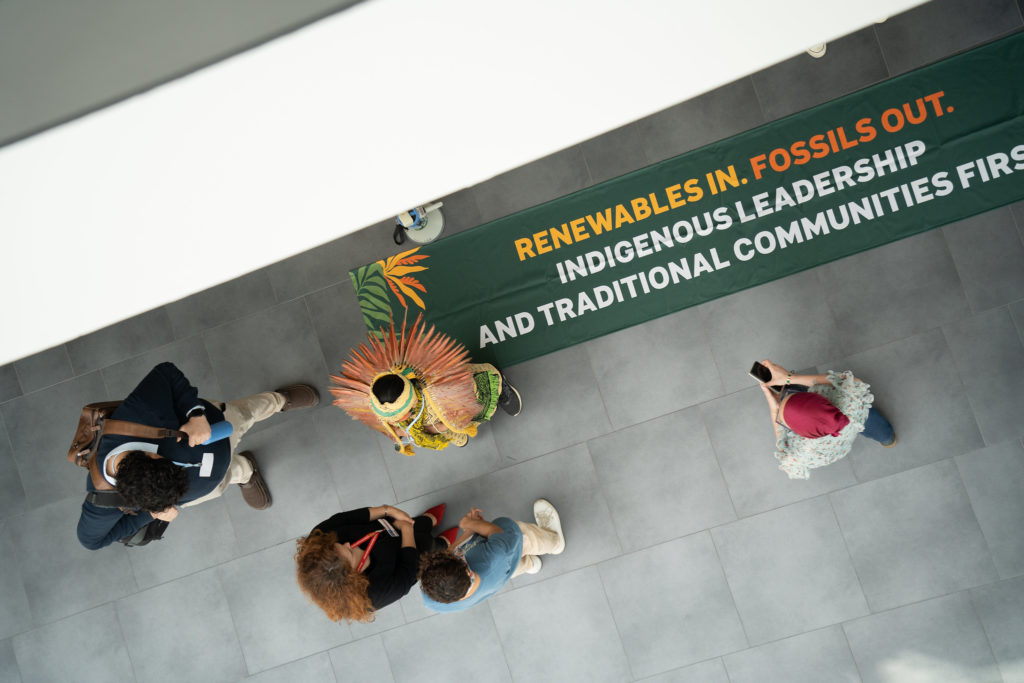
Nationally Determined Contributions (NDCs) and NDC Dialogue
September marks a critical deadline for all Parties to submit their next round of Nationally Determined Contributions (NDCs), including emission reduction targets for 2035. At the Bonn session, a specific annual NDC dialogue took place, which made clear that NDC ambition needs to be stepped up across all areas, including but not limited to mitigation and adaptation.
In the absence of its own 1.5°C-aligned NDC and 2035 targets, the EU is currently unable to credibly advocate for ambitious and 1.5°C-aligned NDCs from other major economies. Climate Action Network (CAN) Europe reacted to the EU’s formal 2040 proposal presented by the European Commission on 2 July and sent a letter to environment ministers demanding that the EU shows global climate leadership in its upcoming NDC submission. The political pathway for the EU to submit an NDC still within the UNFCCC deadline in September is to agree on the NDC and the 2040 target in the ministerial council on 18 September, which, however, is still not a given.
Global Stocktake and UAE Dialogue
In CAN’s view, the objective of the Global Stocktake (GST) and UAE Dialogue must be used by Parties to accelerate implementation of the first global stocktake (GST1) agreed at COP28, addressing gaps in mitigation, adaptation, and finance. At Bonn SB62, the debate hardly advanced as Parties continued to diverge on the scope and format of the UAE Dialogue. A larger group of countries, including the EU, Least Developed Countries (LDCs) and the Alliance of Small Island States (AOSIS), advocate for a broad scope that spans all elements of the GST decision and reflects progress in implementing it, opposed by some other groups. To what extent the UAE Dialogue would in the future also be held on the ministerial level still remains to be decided. In the end, Parties were not able to agree on formally forwarding considered texts as a negotiation basis to COP30, which leaves the co-facilitators to develop an overarching informal note to form the basis of discussions in Belém and with parties supporting this proposal.
Sharm el-Sheikh Mitigation Ambition and Implementation Work Programme
Once again, agreement on scaling up mitigation ambition and implementation remained elusive in Bonn. At Bonn, the Mitigation Work Programme (MWP) produced a vague ‘headers only’ informal note, reflecting persistent disputes. AOSIS, the Independent Alliance of Latin America and the Caribbean (AILAC) and others criticised the MWP for failing to deliver real outcomes after five dialogues. Parties remained divided on whether the MWP should catalyse action or stay a space for dialogue—with LMDCs, the African Group, Arab Group, India and China favouring the latter. Without clarity on its future, the risk remains that this critical space could be discontinued ahead of COP30 in Belém.
Talks were further stalled by Brazil’s push for a new digital platform, which some saw as a tactic to revive the MWP, but others, including the EU, view it as a distraction. CAN maintains that the MWP must prioritise real-world outcomes—including the protection of human rights, forests, health and Indigenous Peoples—and reject false solutions like carbon markets, most bioenergy, and removals tied to fossil fuel expansion.
Just Transition Work Programme
The Just Transition Work Programme (JTWP) gained prominence in Bonn, with many prioritising it for COP30. Negotiations benefited from longer sessions and broader engagement. CAN welcomes the inclusion of an option to establish new institutional arrangements—a possible home for whole-of-economy, rights-based just transition under the UNFCCC.
We also welcome many promising elements in the text: integration of just transition into NDCs, National Adaptation Plans (NAPs), and Long-term Low Emission Development Strategies (LT-LEDS); alignment with human rights, gender and intergenerational equity; and support for decent work, care economies, ecosystems, Indigenous Peoples, migrants, persons with disabilities, and people in vulnerable situations.
Despite some disagreements—on finance, trade, gender, and paragraph 11g on transitioning away from fossil fuels—constructive options remain. Positive language on universal sustainable energy access and socioeconomic benefits of a fossil fuel phaseout, as well as references to debt, fiscal space, international cooperation to support just transitions, and cross-border trade impacts, are on the table.
The EU played a constructive role in moving the process forward. The text advancing to COP30 reflects real progress and broad support. The JTWP now heads to Belém with momentum, but sustained engagement in capitals, especially in the EU, is vital to secure a landmark global just transition outcome in 2025.
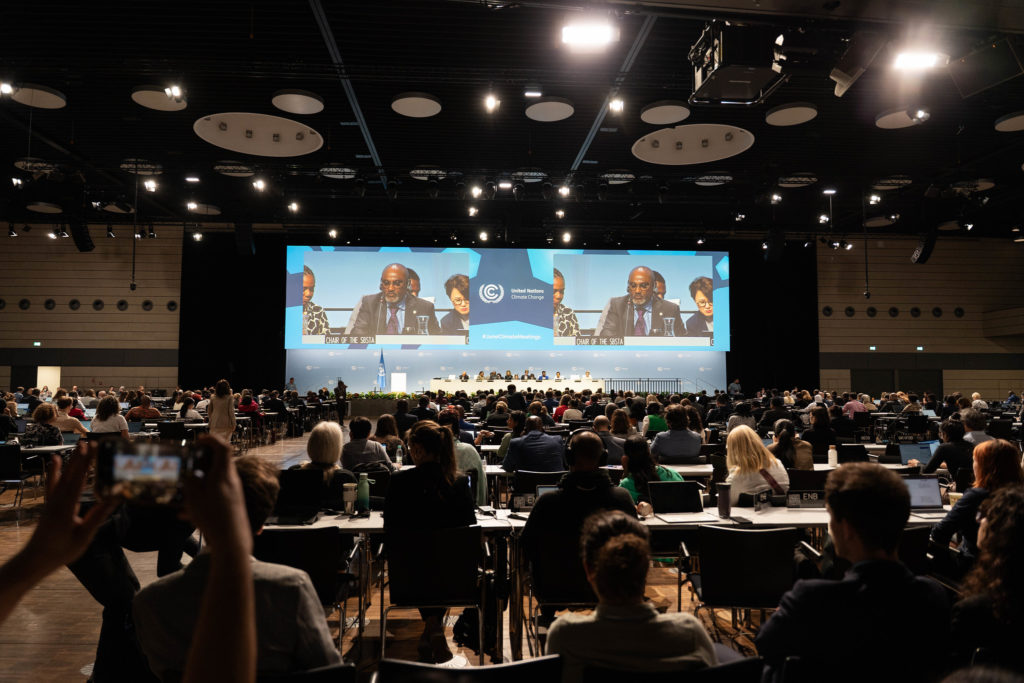
Finance
Provision of public climate finance by developed countries remained a sticking point across negotiation topics—particularly those on finance. A workshop on projected climate finance (Article 9.5 Paris Agreement) did little to allay concerns about the direction of travel.
At the start of the SBs, the LMDC group proposed an agenda item on Article 9.1 of the Paris Agreement, which was blocked by the EU and other developed countries. The EU raised concerns that attention is also needed on mobilisation and enabling environments, and that there are already numerous finance agenda items.
During Subsidiary Body for Implementation (SBI) and Subsidiary Body for Scientific and Technological Advice (SBSTA) consultations the Environmental Integrity Group (EIG) proposed another set of items: Article 9 of the Paris Agreement (including not only provision by developed countries, but mobilisation, and voluntary contributions by other parties), Article 4.3 of the UNFCCC (provision of finance and according to burden sharing, still including the USA) and rationalising finance items under the SBI—a proposal the EU indicated support for. Parties will return to this at COP30.
Another avenue for addressing finance provision exists via the Baku-Belem Roadmap to $1.3 Trillion, in a follow-up to the new collective quantified goal agreed at COP29. However, civil society and even Parties are concerned about the transparency and inclusivity of this Presidency-led process.
In Presidency consultations at Bonn, the EU focused on minimising the role of public finance contributions by developed countries, highlighting the role of the private finance sector, and did not draw a clear distinction between the Roadmap and Article 2.1(c) of the Paris Agreement (concerning shifting all financial flows).
Finding an adequate space to address climate finance provision will be key to breaking the deadlock at COP30 as well as rationalising the agenda. The EU needs to pay adequate attention to public climate finance provision, grants and concessional instruments, adaptation and loss and damage finance.
Participants seemed to engage in the Sharm el-Sheikh Dialogues on Article 2.1(c) and its complementarity with Article 9 in a more positive spirit than in previous years. The next workshop will take place before CMA7, followed by a report of the Co-Chairs to CMA7, where Parties will have to decide how to follow up.
A concrete follow-up is a priority for the EU. In the EU’s submission ahead of SB62, it indicated a focus on fossil fuel subsidies in domestic contexts, barriers to investment in developing countries, transition planning, transparency, and capacity-building. To determine a way forward at COP30, the EU will need to reach out to climate-vulnerable countries and shape an Article 2.1(c) approach, which could benefit them and address concerns about unintended risks, while ensuring adequate attention to fossil fuel subsidies and regulation of private finance.
Demonstrating commitment at home is also important: Commissioner Wopke Hoekstra’s responsibility to ‘develop a roadmap to further scale down and phase out the use of fossil fuel subsidies’, as well as efforts to make polluters pay through new fossil fuel, wealth and aviation taxes in collaboration with other countries, will be important outside the negotiations.
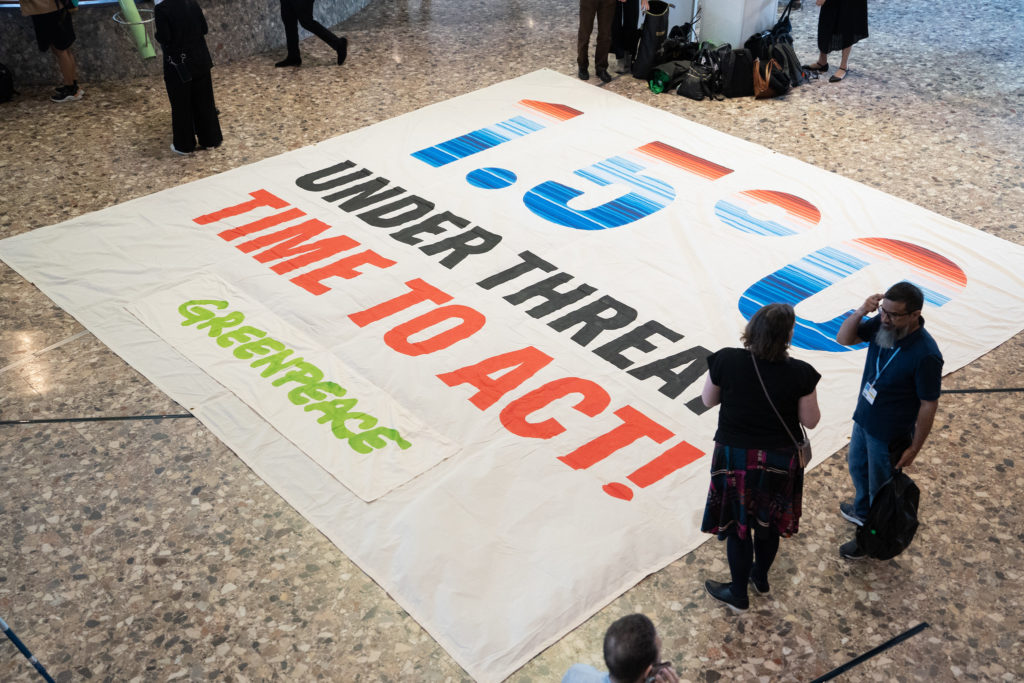
Global Goal on Adaptation
Negotiations have been extended multiple times due to a lack of agreement, and struggles continued at SB62. Amongst the list of indicators underpinning the goal, developing country parties wanted to see means of implementation and an adaptation finance target, while the EU and other developed countries resisted.
On the final evening of SB62 a range of conclusions were finally adopted in an informal note and agreement to forward matters for further consideration at their next session in November 2025. Guidance provided to experts for refining the list of indicators included a reference to “indicators for means of implementation to measure: access, quality, and adaptation finance, including provision.”
The EU’s roadmap to COP30
At Bonn, the EU had to consider how to maintain and advance a leadership role in the absence of the US, but a weak position on finance provision hampered its efforts on other issues. Domestic politics, de-prioritisation of climate policy, and Official Development Assistance (ODA) and climate finance cuts informed and undermined its negotiating mandate.
There is much work for the EU to do between now and COP30 in Belém in November to reach out to other parties, listen to concerns, and build alliances, in order to contribute to a strong set of COP30 outcomes. There is also real work for the Brazilian COP30 Presidency to bring Parties together to build a constructive space at COP, particularly to address the collective ambition gap of nationally determined contributions and on the provision of public finance by developed to developing countries.
The EU also needs to adopt an internal and external strategy to engage parties on the CBAM to ensure progress with it via the Just Transition Work Programme and other tracks where unilateral response measures have been highlighted as a concern.
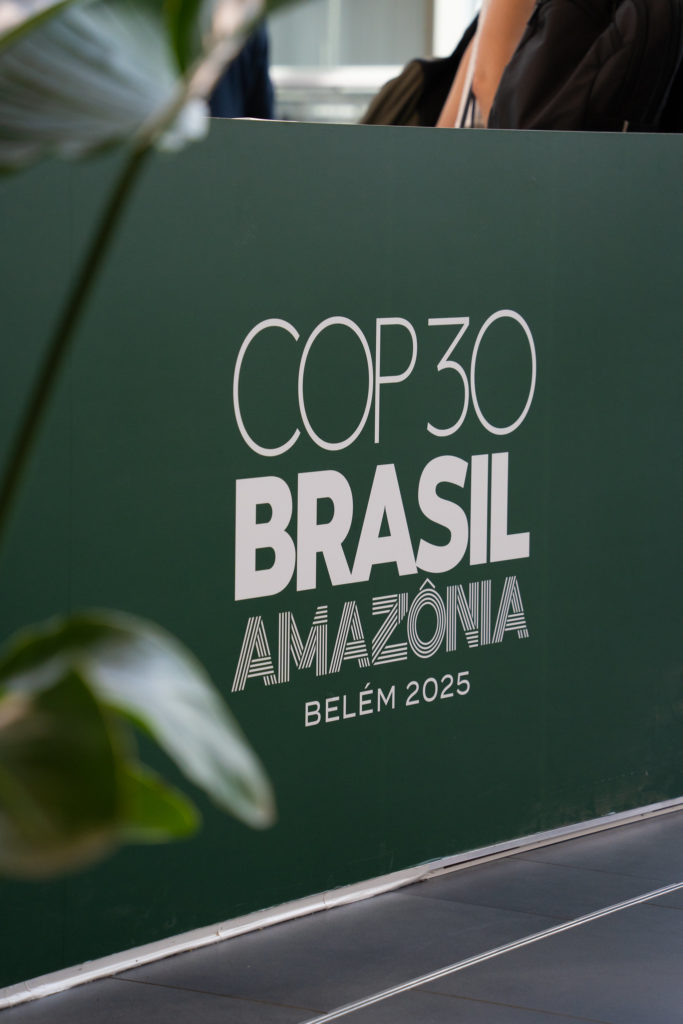
This article has been written by CAN Europe’s Senior Policy Coordinator on International Finance & Development, Rachel Simon, International Climate Policy Coordinator, James Trinder, and Head of Climate, Sven Harmeling.



